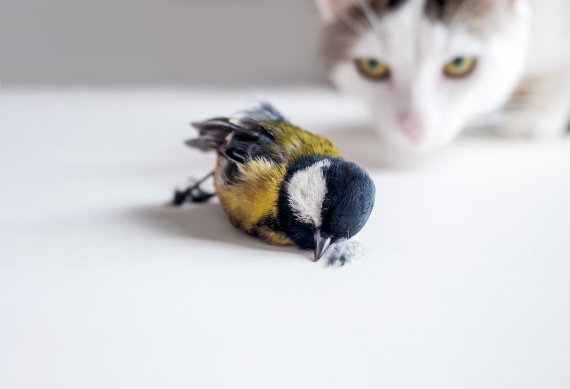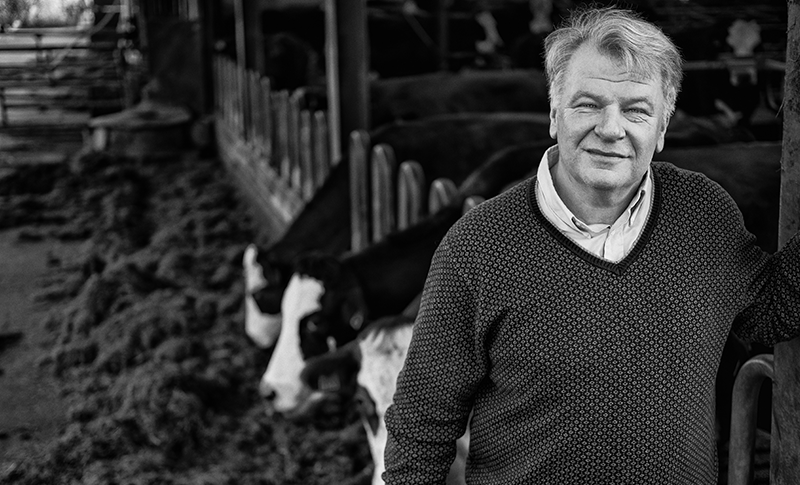Pigs that are immune to viruses thanks to CRISPR-Cas technology, hornless cows and dogs in the most exotic shapes and sizes. Humans modify animals to fit their wishes – and the result is not always bad for the animals’ welfare. But that is not the end of the matter either, argues ethicist Bernice Bovenkerk.
‘We are agreed on the principle that we should consider animal welfare,’ says Bovernkerk. ‘And there are modifications that do not affect welfare. In fact, they sometimes even “solve” something. One example is genetic modification that causes cows to be born hornless, and they injure each other less as a result. Many people have ethical qualms about modifying animals, quite apart from the issue of welfare. But these objections get lightly dismissed.’
In the context of her VIDI research ‘Anthropocene Ethics. Taking Animal Agency Seriously’, Bovenkerk discussed the four main arguments, publishing her analysis in Animal Frontiers.

Integrity
One oft-cited argument is that modification affects the animal’s integrity. Bovernkerk: ‘People have their own idealized image of how animals should function. In many cases, what we mean by that is how we imagine they would live in the wild. So pigs with docked tails and Belgian Blue cows that cannot give birth without help constitute assaults on the animal’s integrity. But if a dog’s tail is amputated because of a tumour, we don’t usually see that as an assault on its integrity. So the motives for the modification are a factor.’
Animals as objects
A second important argument is that modifications cause us to instrumentalize animals. ‘We fit barns and cows with sensors. Handy, because then cows can be milked automatically. But it also increases the distance between the animal and the farmer.’ According to Bovenkerk, this turns the animal into a living cog in the machine of the system. ‘The question is: should we adapt the animal to the barn? Or the other way round? We breed pigs with CRISPR-Cas that are immune to viruses. That saves pigs’ lives, but there would probably be fewer viruses if we didn’t keep the pigs in such crowded conditions.’
In these situations, says Bovenkerk, the animal is not an individual but an instrument for reaching our goals. It is thus reduced to its basic functions: a cow is born, eats, drinks, gives birth, lactates and dies. ‘Animals are interchangeable in this system. And that objectification doesn’t only apply in livestock farming. In the world of dog-breeding, a bitch is declared ‘empty’ once her puppies are born.’
Should we adapt the animal to the barn or the other way round?
The danger, according to Bovenkerk, is that we assume animals have no perspective on their lives and no wish to make the most of them. What constitutes a good life for an animal, anyway? Not an easy question to answer, she thinks. ‘Behavioural scientists assume that animals do aim at certain goals in their lives, though not necessarily consciously. Animals also seem to have a range of individual preferences and personalities.’
God and nature

Then there are people who think we should not play God. Bovenkerk: ‘This is not just a religious argument. You can also look at it like this: Evolution has gone through billions of years of trial and error to get to where we are now. How arrogant is it to think that we are going to make some quick improvements on that?
An argument that is close to this one is the point that modifications to animals are unnatural. Not because they make things happen that never occur in nature, but because they are brought about by humans. ‘Many philosophers find that a tricky issue,’ says Bovenkerk. ‘Nature is certainly not a suitable yardstick for what is “good”. A cat plays with its prey and some animals eat their own young. You won’t hear anyone saying we should do that because it’s natural. Just as no one says people who wear glasses are bad because glasses are unnatural.’
A fallacious argument is still an argument
According to Bovenkerk, people often call something unnatural when what they really mean is that they disapprove of it. ‘Philosophers dismiss that as a fallacy. And it is, but we shouldn’t ignore this frequently used argument. It is interesting to research what underlies it, and have a conversation about that.’
Worldview
The above-mentioned arguments can be traced back, says Bovenkerk, to our worldview and our fundamental values. ‘The moral discussion about modifying animals is not so much about how an animal experiences it as about how we humans experience it. How do we as humans want to live in relation to nature and other animals? What is a good life and what makes you a good person? There are fundamentally different opinions on that. By talking about it, you gain a better understanding of each other. Scientists, for instance, think people are not in favour of a new technology because they don’t understand it. And that the key to convincing people is to increase their knowledge. But it is often a lot more complex than that. Some studies show that more knowledge has the opposite effect.’
Public debate
At present, such objections are mainly aired in private, says Bovenkerk. ‘I think political decisions are made on the basis of as much input as possible, and these values and worldviews are part of that too – and are more important to a lot of people than welfare arguments. It doesn’t mean you have to rush through new legislation. But by only raising welfare- based arguments, you impoverish the debate and you also create a bias that tilts things in favour of the proponents of using new technologies on animals.
Only raising welfare arguments impoverishes the debate
Many of which do not, incidentally, have a direct negative impact on animal welfare. Let’s not blindly use our technologies on animals, but step back now and then and reflect on what that means for our relationship with animals and nature, and whether this is a world we want to live in.’

 Text Tessa Louwerens. Photo: Shutterstock.
Text Tessa Louwerens. Photo: Shutterstock. 

